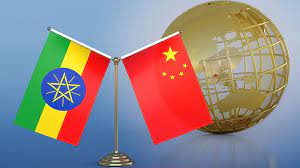
The emergence of the BRICS group- Brazil, Russia, India, China, and South Africa- portrays a new multi-polar world system, challenging the traditional dominance of the West. This shift significantly breaks from the North-South dichotomy, opening up the political recognition and economic potential of the developing world and presenting them as active participants in shaping the future of the international system.
The BRICS nations have evinced an ardent desire to channel investments into Africa and have pledged to encourage regional integration in Africa and help the continent in its developmental pursuits. The emergence of the BRICS creates a significant prospect for African nations to employ their own resources and steer their developmental agenda. This is a crucial advancement in international politics, denoting a transfer of power away from established global centers towards the developing world.
The formation of the BRICS bloc stands as a testament to the growing recognition of the economic and political capabilities of developing countries. For far too long, countries in the Global South, such as Africa, have been seen as passive players in global development whose only function is to receive aid. However, with the emergence of the BRICS bloc, this perception has been overturned, and these countries are now viewed as active stakeholders in shaping the future of the global order.
The future of the international system is significantly influenced by this novel trend, proffering optimistic opportunities for Africa and the entirety of the global south. Although the precise details of this new system are still developing, it is apparent that the rise of the BRICS is an important alteration in the global distribution of power and the approaches taken concerning development.
The emergence of the BRICS bloc indicates a shift in recognizing the economic and political abilities of developing countries. This departure from perceiving them as aid recipients or passive players in global development acknowledges the active role of countries in the Global South, including Africa, in shaping the direction of the international system.
By providing a platform for countries in the Global South to collaborate, the BRICS bloc offers an alternative vision for global economic integration that prioritizes the interests of the developing world. The formation of the BRICS bloc represents a historic shift in the global balance of power and a more inclusive approach to international relations.
By the same token, the emergence of the BRICS bloc has highlighted the need for a more equitable and inclusive global economic system. Many developing countries have long been subjected to unfair trade practices and unequal access to markets, limiting their capacity for economic growth.
The formation of the BRICS bloc served as a catalyst for discussing the imbalances present in the current global economic system. These countries, representing different regions and economies, have recognized the importance of coming together to address the unfair trade practices they have faced. By highlighting these issues, the BRICS bloc has played a critical role in raising awareness about the necessity for change.
Furthermore, the BRICS bloc emphasizes the significance of cooperation and collaboration among developing nations to overcome the challenges they face. By working together and sharing experiences, these countries can develop strategies to navigate the complex global economic landscape more effectively. The cooperative approach of the BRICS bloc encourages dialogue on fair trade, investment, and market access, ultimately paving the way for a more balanced and inclusive economic system.
The formation of the BRICS bloc serves as a catalyst for discussing the imbalances present in the current global economic system. These countries, representing different regions and economies, have recognized the importance of coming together to address the unfair practices they have faced. The emergence of the BRICS bloc has shed light on the urgent need to level the playing field and foster a more inclusive global economic system.
By incorporating sustainability into their economic agendas, the BRICS bloc sets an example for other countries, encouraging them to adopt similar approaches that prioritize the well-being of people.
In an exclusive interview with The Ethiopian Herald, Ambassador Tiruneh Zena, an ex-diplomat, highlighted the transformative power of the emerging BRICS bloc and its influence on global dynamics.
According to analysts in the sector, BRICS is the driving force behind the current shift in the global landscape, bringing about significant changes not only for Ethiopia but also for the global south. Historically, global affairs have been dominated by wealthy Western countries, leaving many nations in the global south struggling to assert their sovereignty and address related issues. However, recent developments suggest that these difficulties are beginning to pay off.
Amb. Tiruneh emphasized that the vibrant movement of the BRICS reflects the progress made in the struggle for a fairer and more just world. The bloc’s primary objective is to reconstruct an unfair global order and create opportunities for inclusive growth. As such, it holds the potential to address the development challenges faced by many countries in the global south.
However, the ex-diplomat acknowledged that the current world order is undergoing swift changes, and he expressed optimism that the prevailing unfair situation will not persist.
He went on to say recent military coups in several African nations aim to replace Western-backed puppet governments, although these actions undermine democratic systems. Consequently, countries like Ethiopia need to adapt to the changing global system and seize opportunities to their advantage. The advent of BRICS may also prompt reform within international institutions such as the World Bank (WB), the International Monetary Fund (IMF), and others. Preconditions and interference in countries’ internal affairs could be reduced, leading to a more equitable representation of the global south, which has long been marginalized.
“The potential for developing countries, including those within BRICS, to play a more significant role in shaping global governance structures and addressing common challenges .The WB and IMF may reconsider their conditionality requirements and reduce unnecessary burdens as a result of BRICS’ emergence as an alternative bloc, particularly for African countries,”.
In 1950, the US accounted for 60 percent of the world economy, while the global south represented less than 10 percent, with Europe, Asia, and other regions comprising the remainder. However, BRICS countries now contribute approximately 30 percent to global GDP. This reality should force the West to reevaluate their conditionality systems and support African and other global south nations in utilizing their resources independently.
Reflecting on his experience as Ethiopia’s representative in the 2005 debate on African representation in the United Nations Security Council (UNSC), Amb. Tiruneh expressed a change in his perspective. He believes that Africa is not only deserving of a permanent seat in the UNSC but also in the G-20. He also stressed the importance of African countries reaching a final consensus on how they would be represented before obtaining such positions.
Overall, looking ahead, the emergence of BRICS calls for self-examination among Western countries and institutions. Amb. Tiruneh predicts that the upcoming G-20 summit could signal a greater inclusiveness towards Africa and the global south, underscoring the growing significance of the bloc’s movement. Failure to acknowledge and adapt to this shift in power dynamics may result in Western powers losing control. As the global order undergoes rapid changes, Ethiopia and other nations must seize the opportunities presented by the evolving landscape and adapt to the changing global system.
The advent of BRICS holds the promise of reforming international institutions, reducing preconditions and interference in internal affairs, and providing more equitable representation for marginalized regions. By leveraging strong diplomatic relations and collaborating with various countries and blocs, Ethiopia can maximize the benefits and contribute to a fairer and more just world order.
The transformative power of BRICS and its commitment to inclusive growth and global governance reforms cannot be ignored. As the world witnesses the unfolding of this new chapter in global dynamics, the influence of the bloc is dignified to shape the future and redefine the role of the global south in the international arena
BY EYUEL KIFLU
THE ETHIOPIAN HERALD WEDNESDAY 6 SEPTEMBER 2023





